The eighth ‘The Economist: The World in 2020’ conference was held at the National Assembly of the Republic of Serbia. The participants of this year’s conference talked about what awaits us in 2020, but also the coming years.
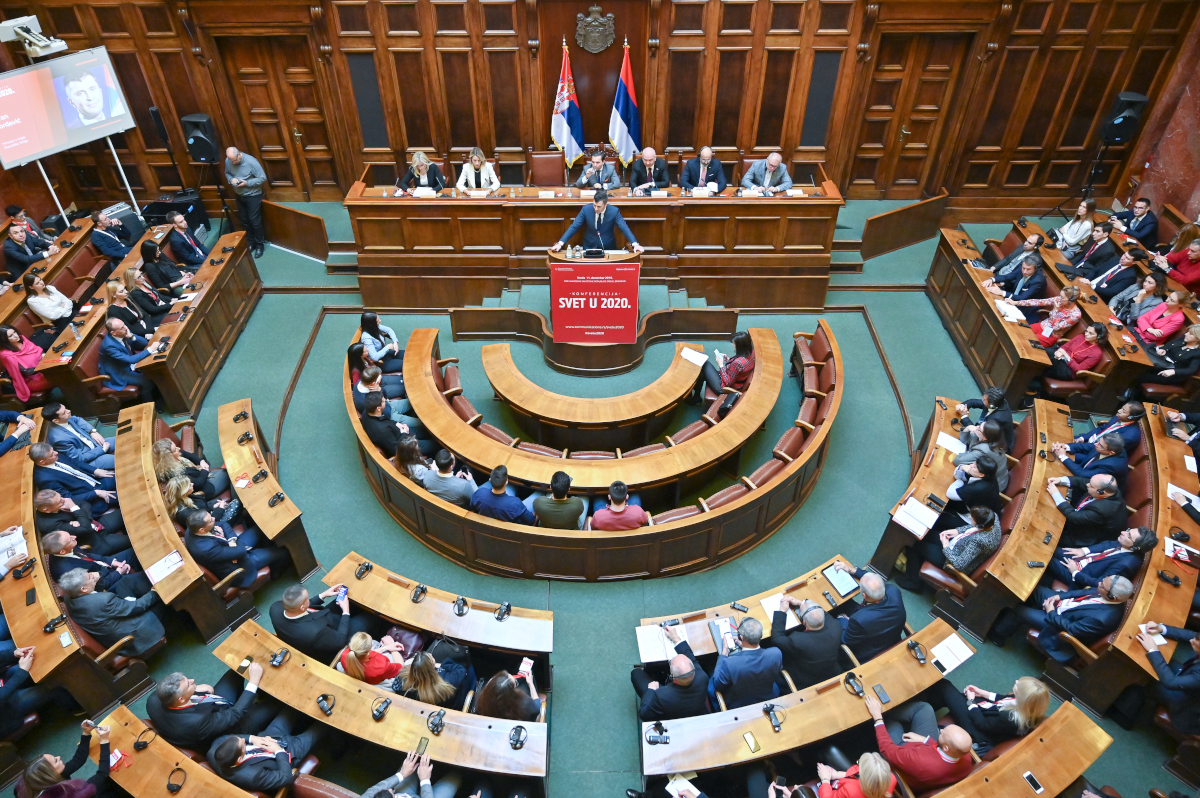
Vladimir Marinković, Deputy Speaker of the National Assembly of the Republic of Serbia, welcomed the conference guests.
“We are pleased with the results this government has accomplished in terms of economic growth,” he said at the opening.
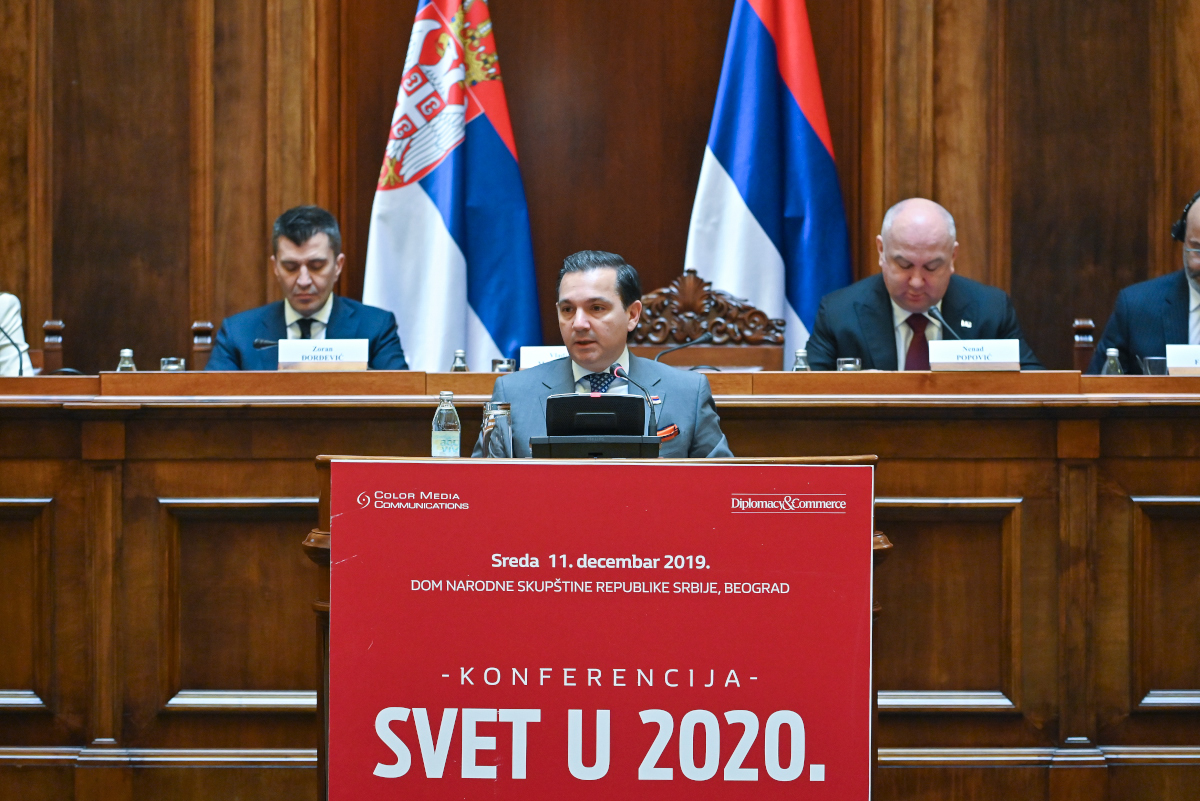
Marinković also spoke about foreign investments, the amount of investments so far in Serbia and plans in this regard, as well as about young people and youth employment.
The conference was officially opened by the Minister of Labour, Employment, Veterans’ and Social Affairs in the Government of the Republic of Serbia, Zoran Djordjević.
“What are the global, local and economic trends and how will they affect Serbia? What is the future perspective? It is leaving the past behind, being creative, having a clear vision of the future, and defining how far we have to go,” the minister in his speech.
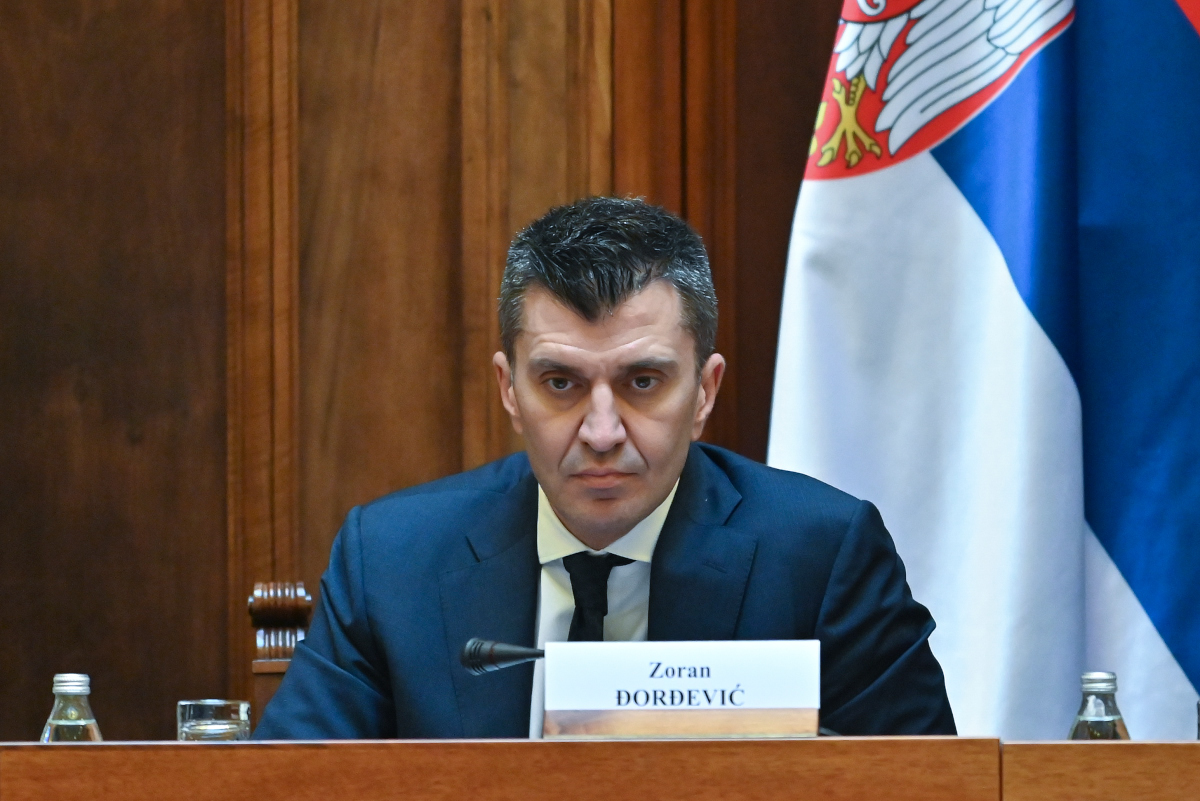
“The jobs of the future require higher education and a skilled workforce, and we will achieve this through the National Employment Service, retraining in the IT sector and the like. Labour shortages will certain reach a certain level in 2020 that could be problematic, but we do have regional integration to mitigate that. The only solution is free movement of labour,” he said.
Technology poses another risk, the minister said and added:”Not only high technology but also artificial intelligence.” He then cited accuracy of information as one of the problems for the coming year.
“This is a global problem which can put both companies and the country in a serious situation. The inevitability of the economic crisis will happen to everyone,” he warned.
“We must learn and overcome all misunderstandings between us. Our competitors are not countries in the region, our competitor is not the EU,” the minister concluded, encouraging everyone to be interested in business as well.
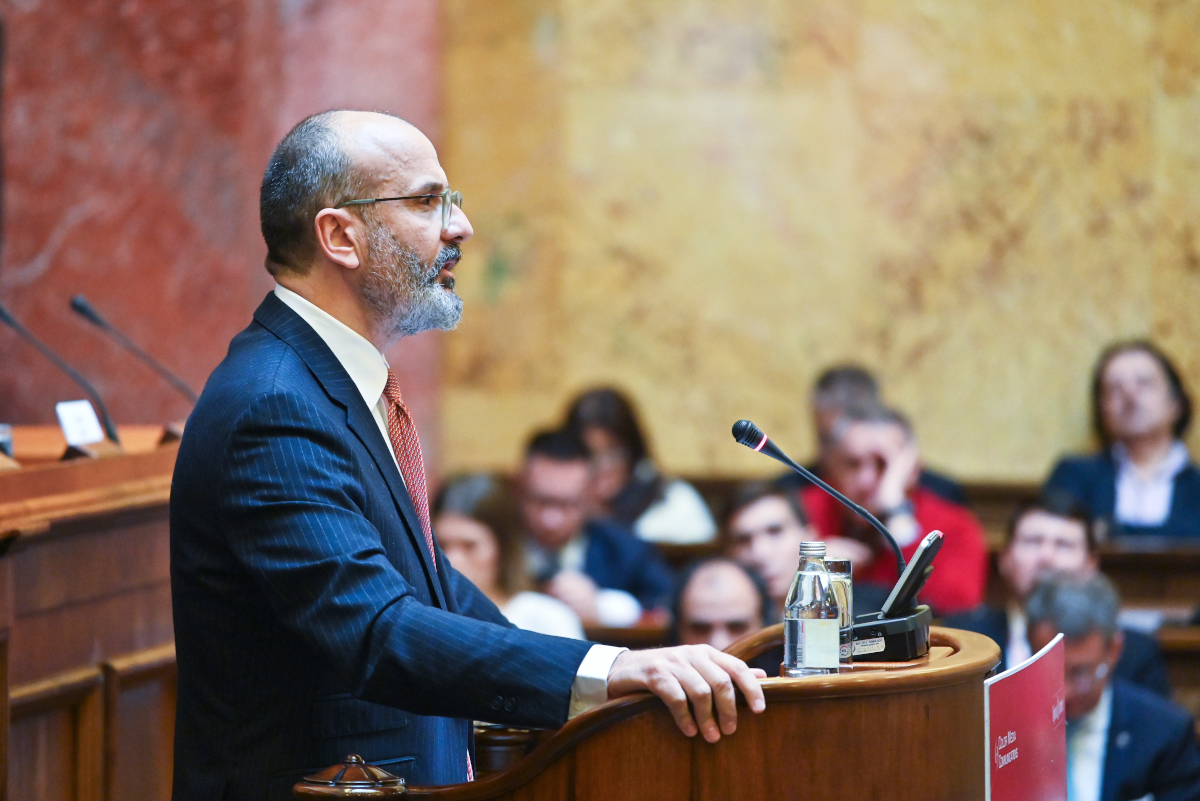
Sam Fabrizi, Head of the EU Delegation to Belgrade said:
“Our ideas are not new, which is to introduce Serbia into the EU family. We can now say that Serbia has covered half of the way, opened 18 chapters out of 35, with one of the most important certainly being the normalization of relations between Belgrade and Priština,” Fabrizi added.
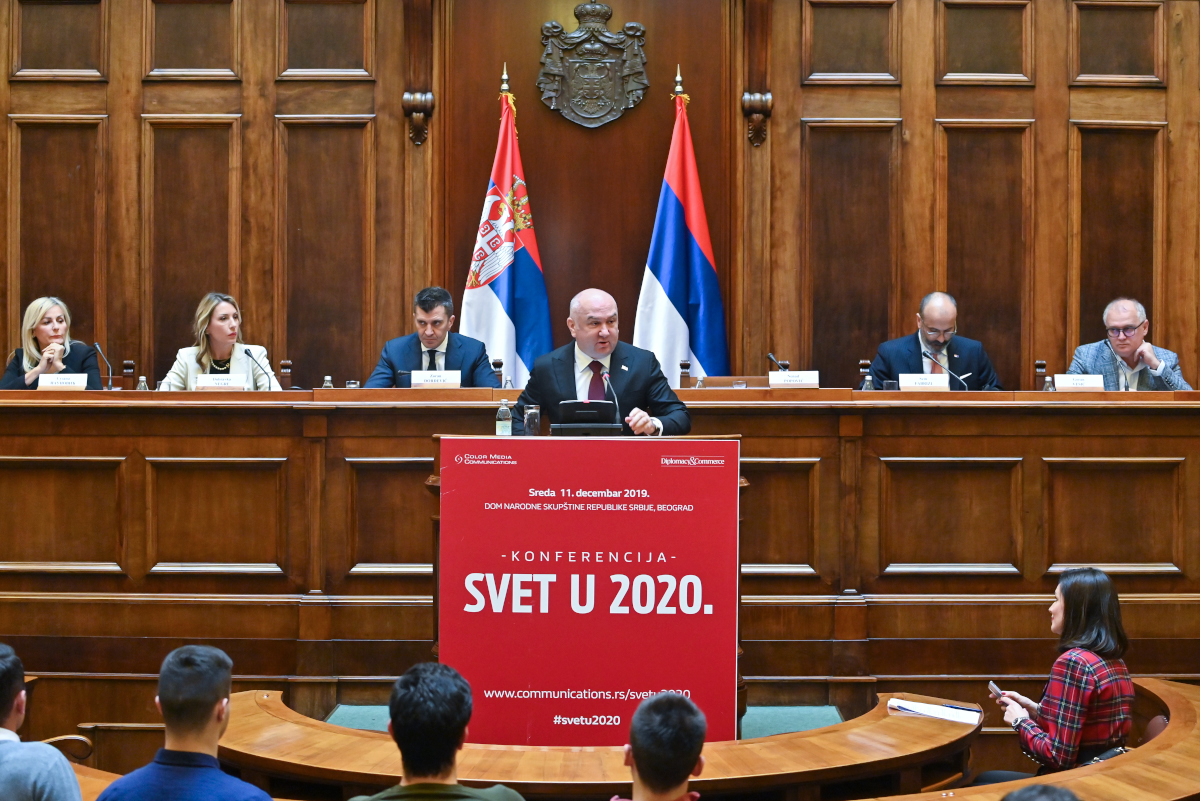
The conference guests were then addressed by Nenad Popović, the minister in charge of innovation and technological development. He spoke of the need to get more and more young engineers, about artificial intelligence, particularly robotics, and he mentioned that we should think all the way to 5G technology, which will surely bring about radical change and innovation.
He has also not forgotten about new space exploration technologies.
“There is no innovation without politics and political decision-making,” Popovic said, adding that science should be pragmatized and applied throughout society. The magic word for Europe’s future is innovation.
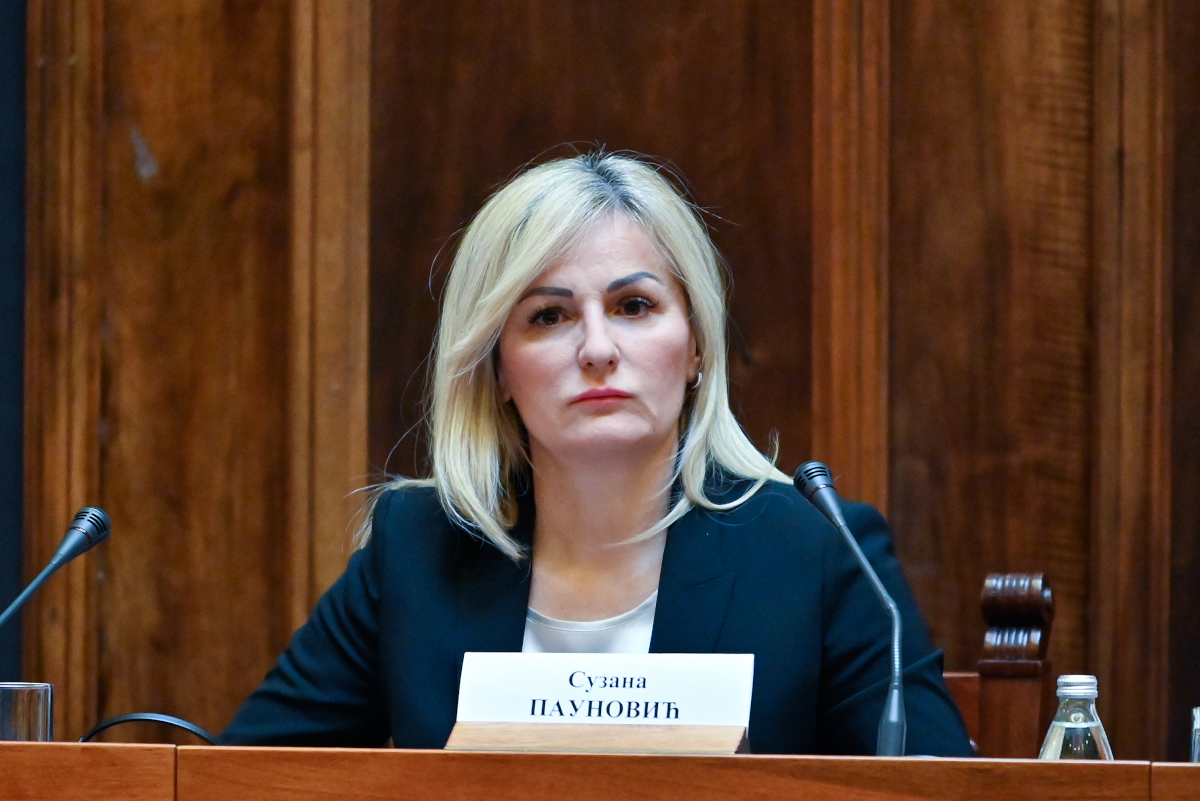
The conference guests were then greeted by Suzana Paunović, Director of the Office for Human and Minority Rights.
“The world around us is constantly changing and today, we face challenges with respecting human rights that bring something new every day. Economic growth and economic globalization are inevitably linked to human rights,” Ms Paunović warned.
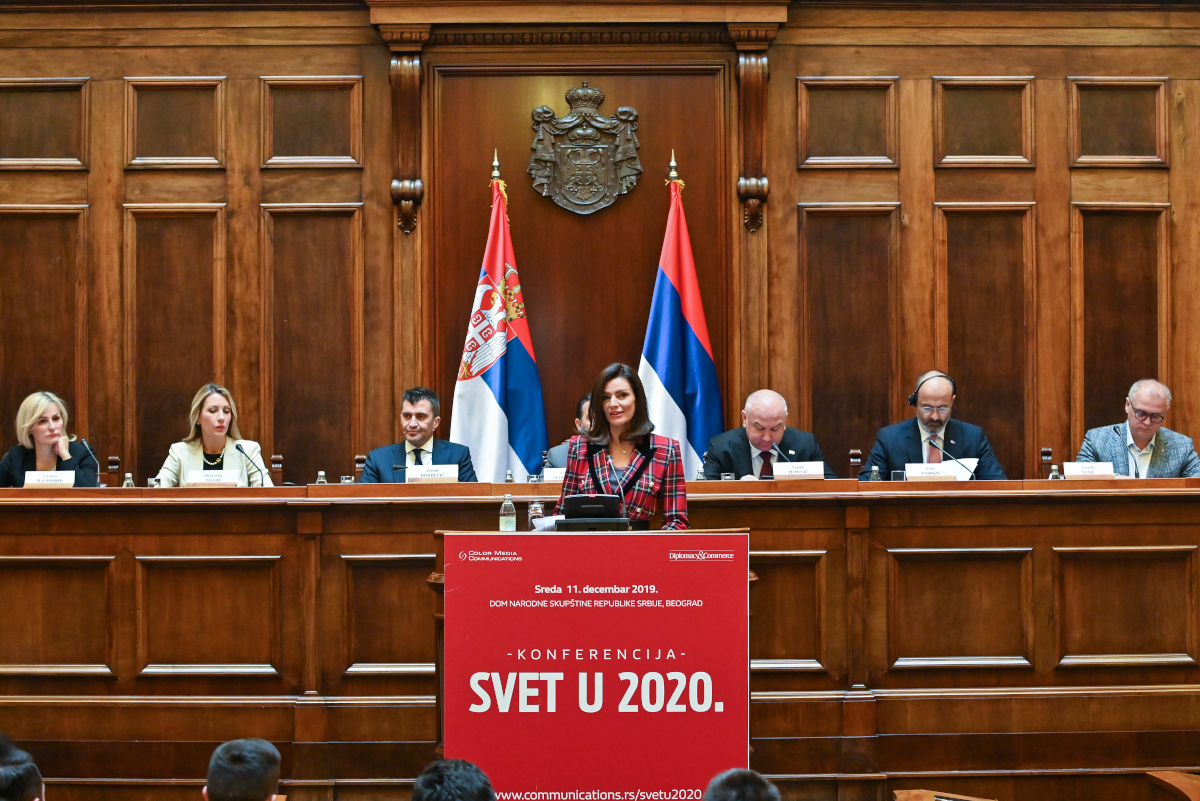
She also mentioned the migrant crisis, exercising human rights in the field of technology, digital reality, artificial intelligence and inequality.
Towards the end of his opening remarks, the Deputy Mayor of the City of Belgrade, Goran Vesić, also addressed the conference participants.
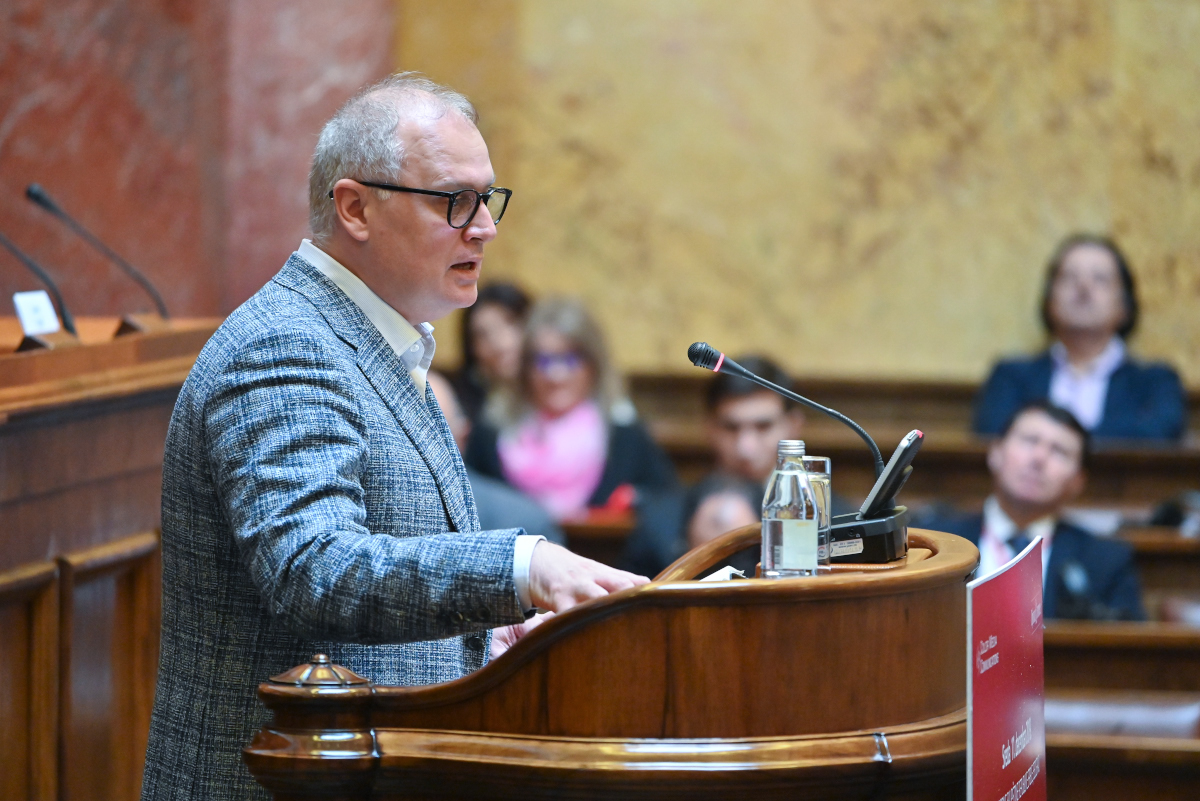
“Conferences like this are important for us to learn from each other and to find out in which direction are others moving,” he added.
Vesić explained what challenges awaited Belgrade in 2020, starting with the transport infrastructure.
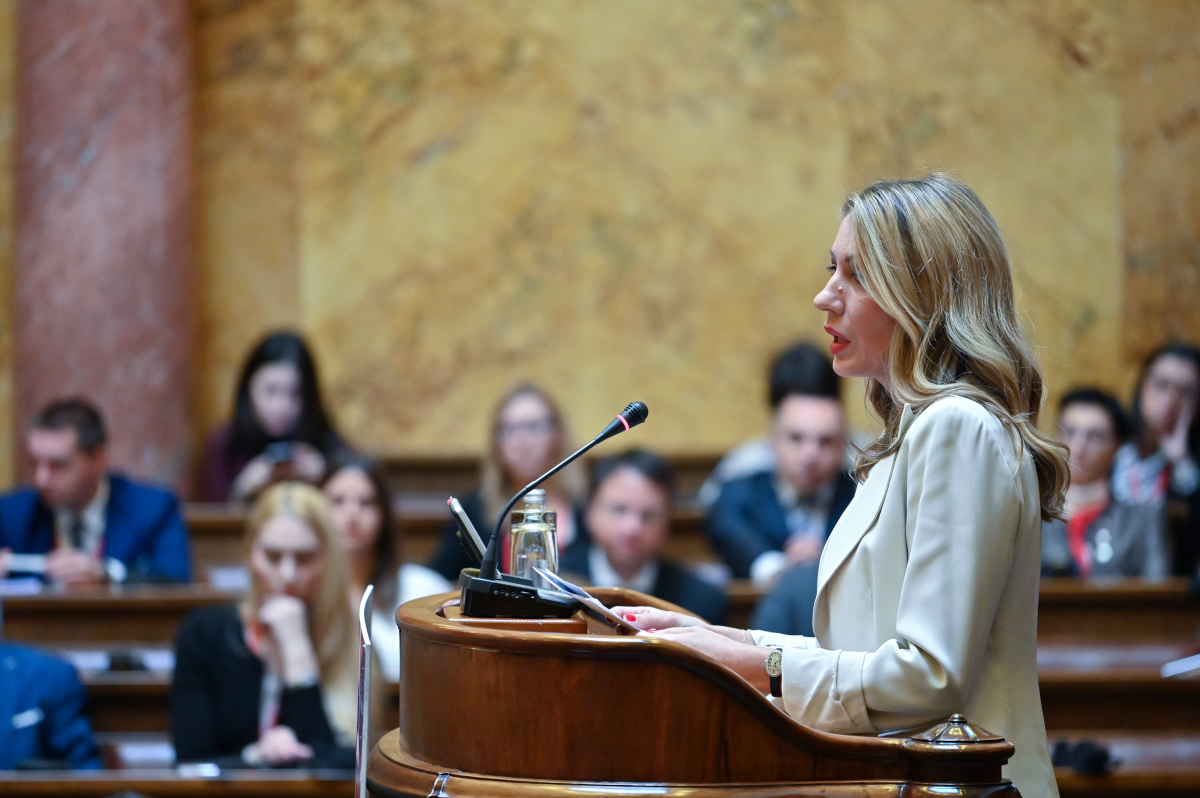
Dubravka Negre, Head of the Western Balkans Office of the European Investment Bank (EIB), addressed the audience with good news – the EU said that war against climate change started immediately and that a strategy covering that topic would be presented. Ms Negre also talked about the first climate law.
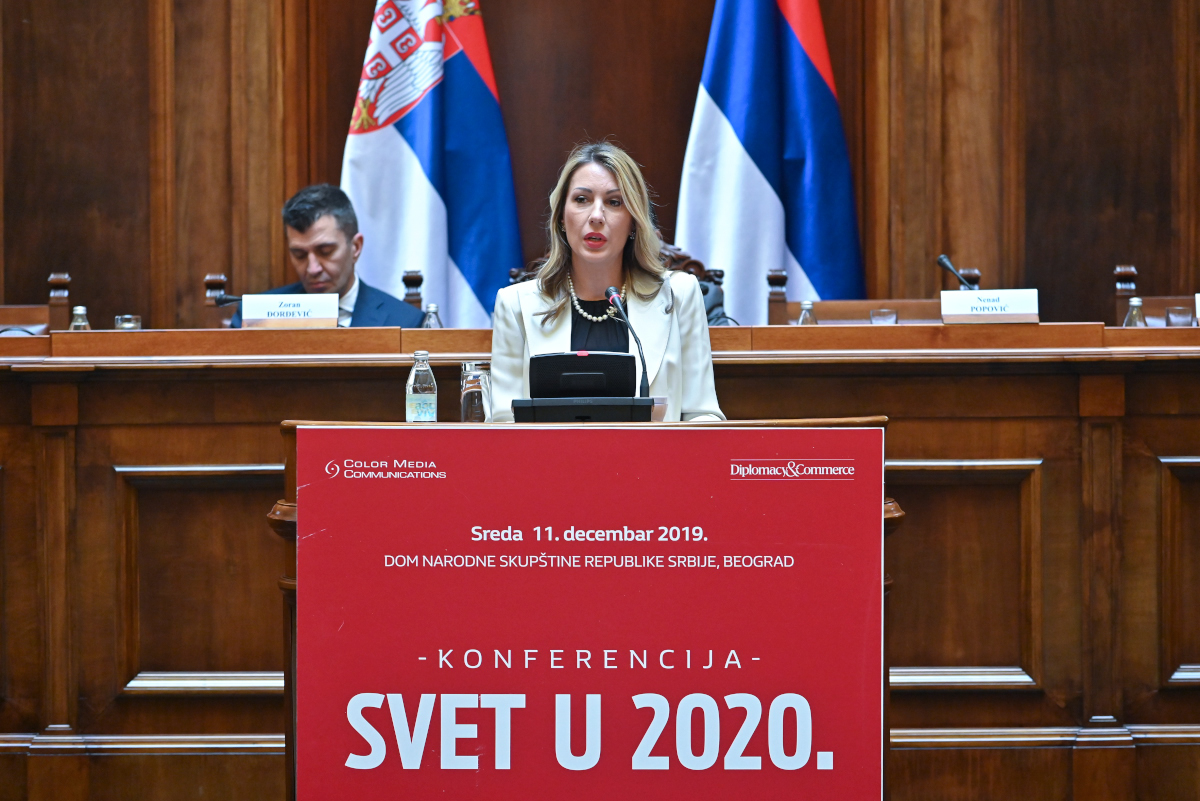
“Climate change is the most important political issue of our time,” she warned.
The Economist’s regional director, Joan Hoey, talked about Brexit and 2020 projections.
“It seems to me that the second phase of the Brexit negotiations could be even more brutal because the logic behind Brexit is that Great Britain is leaving to do something else entirely. 11 months is not enough to negotiate,” she added.
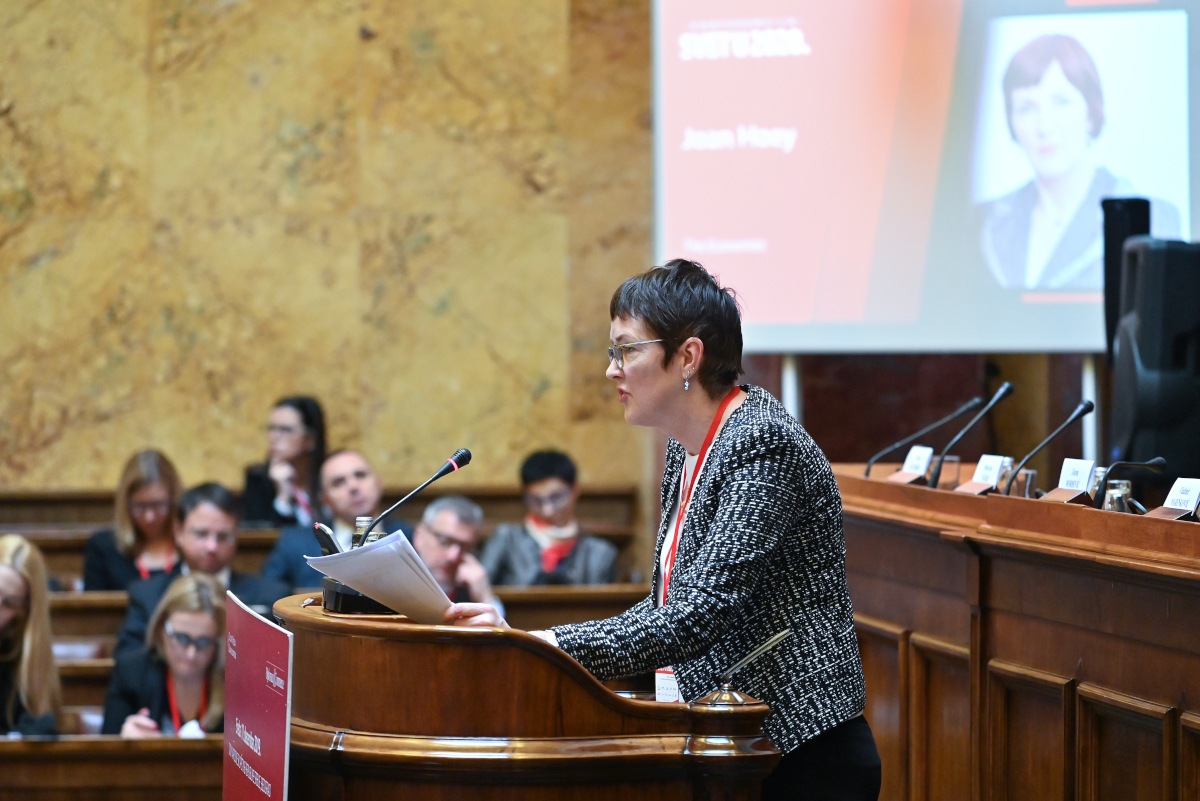
“When Great Britain leaves, the German economy will weaken and this is a real opportunity for France and Mr Macron,” she said and added: “The EU must bring order into its own house and its own backyard.”
“There are also negative consequences for foreign reforms: avoiding negotiations will create additional pressure on the Belgrade-Priština dialogue and, of course, undermine the role and position of the EU. This creates room for China and Russia to strengthen and expand their role. I think it will force Western leaders to reflect on their national interests,” Ms Hoey said.
“Britain has problems with economy which have been ignored by politicians for several decades. I think this applies to the Western Balkans as well,” Ms Hoey added.
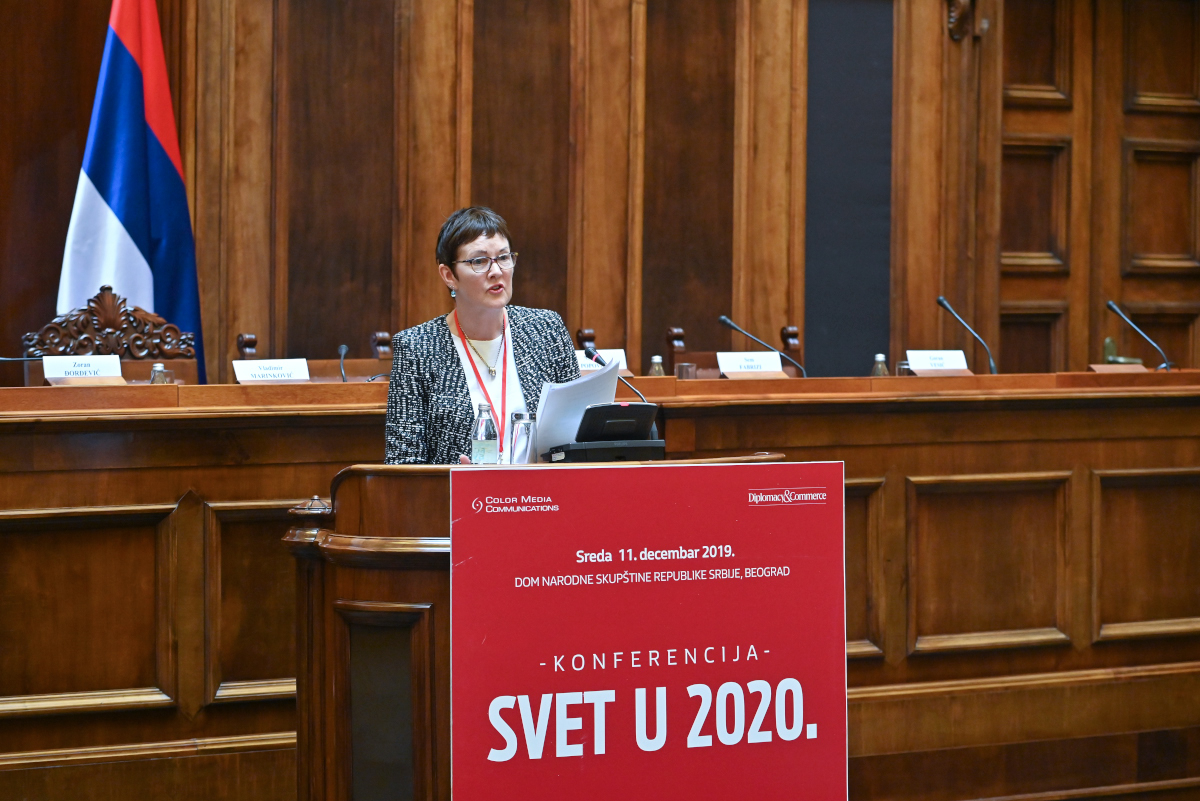
Economist Nebojša Katić spoke during the second case study “Deglobalization and Consequences”.
“The West accuses China of expanding its ‘soft power’ through the Confucius Institute, and that it is doing exactly what Western countries have been doing for decades. China’s economy has grown at an average of 10% per year over the past 30 years. That’s a growth that is unprecedented in human history,” he concluded.
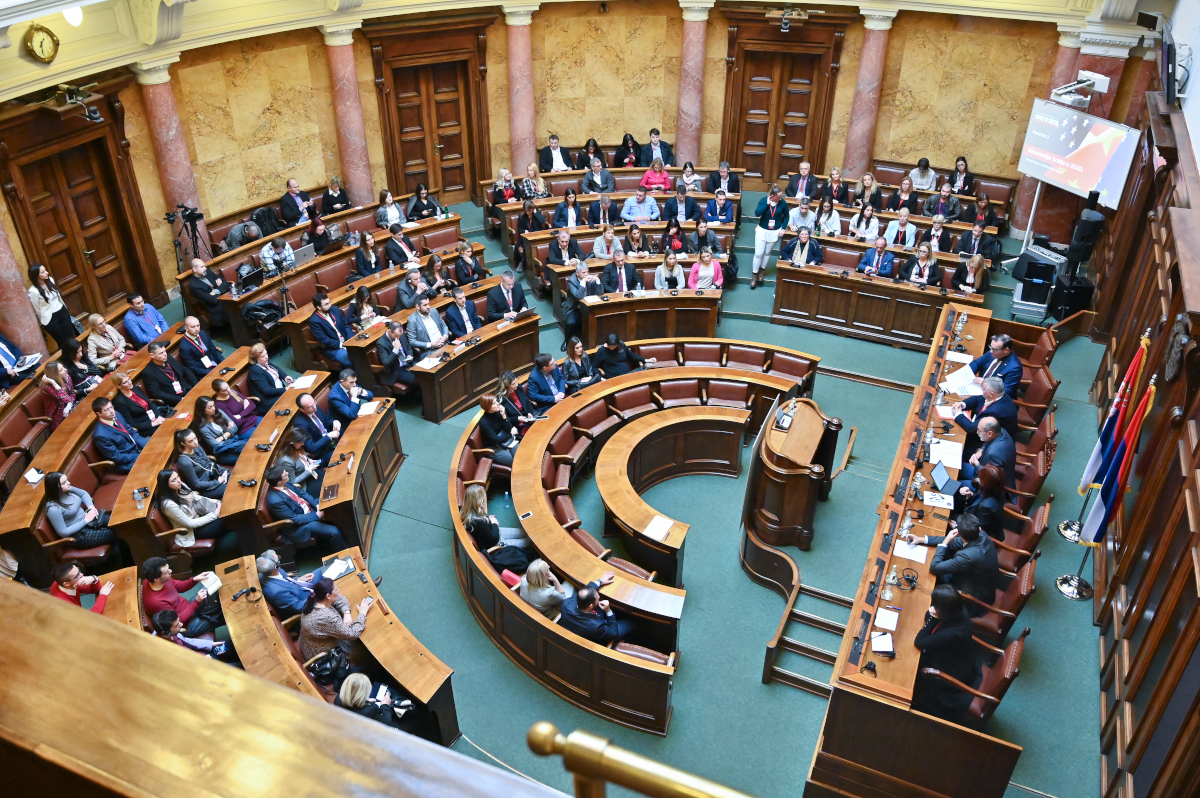
As a keynote speaker at the second panel, “Serbia’s Economy in 2020: The Imperative of Sustainable Growth”, Marko Čadež, President of the Chamber of Commerce and Industry of Serbia, briefly addressed the audience.
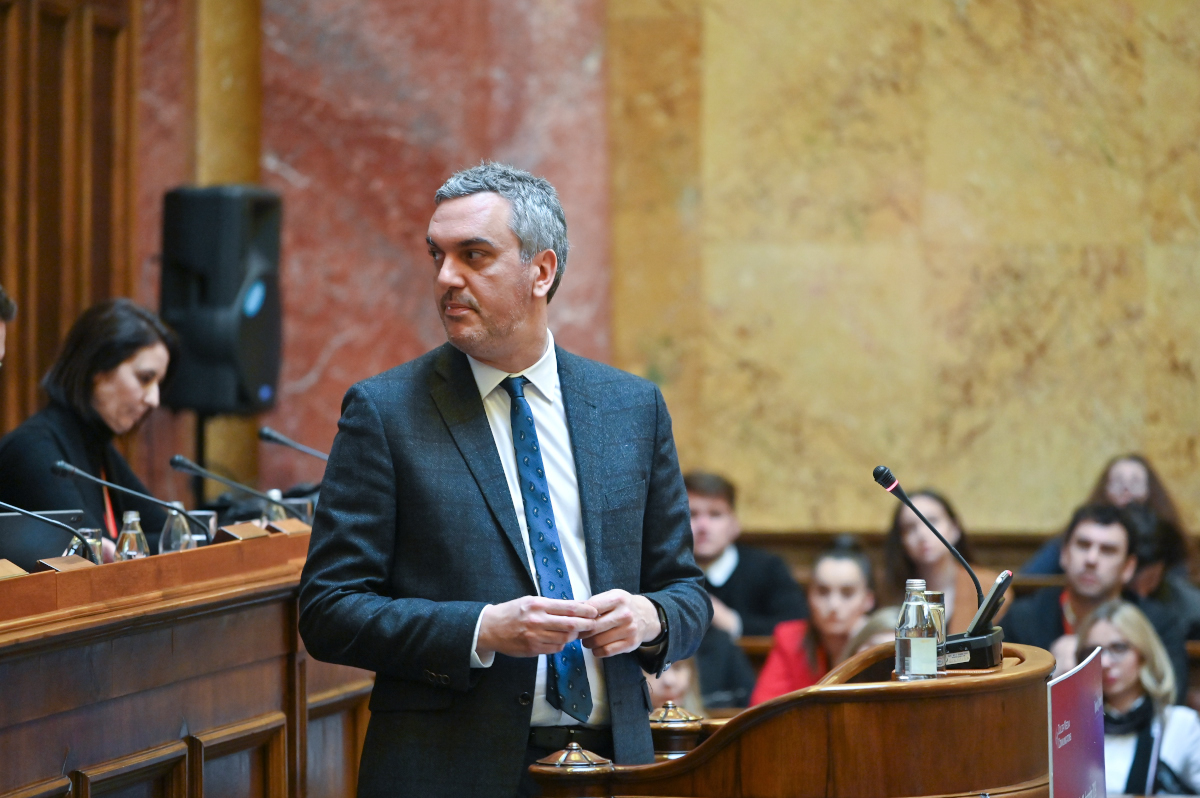
He greeted those present and the panelists, recalling what has been done during the current year, what is important for the coming year, and what is important for business community. He said that half of the foreign companies planning to come to Serbia were from Germany. Ronald Seeliger, President of the German-Serbian Chamber of Commerce (AHK), continued on this topic.
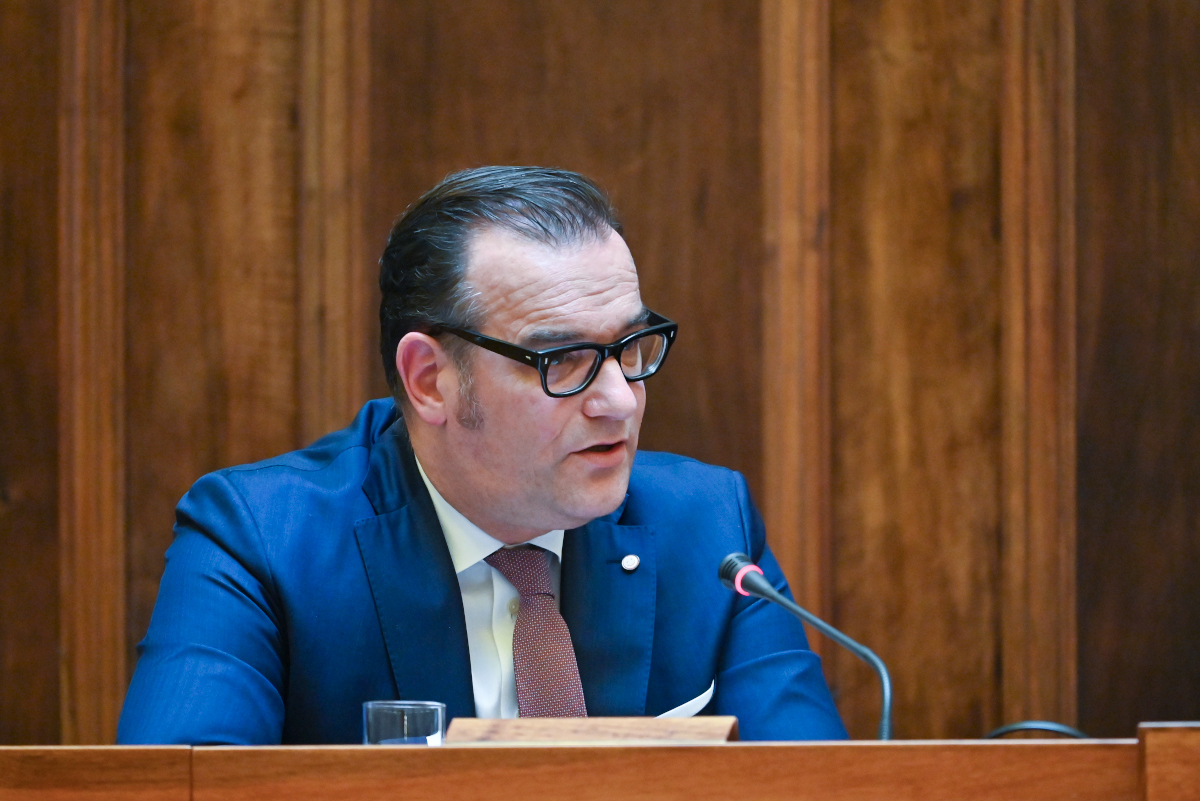
The panel discussed the following topics:
“Europe 2020: Are you hearing “Ode to Joy“ or Another Song?”,”Value in Health Care – Transforming the Health System through Strengthening Private-Public Sector Collaboration”,”Serbian Economy and Industry Development – Domestic and International Business Companies in the Serbian market “, and “Sport & Business – How to have successful and professional sports?“.
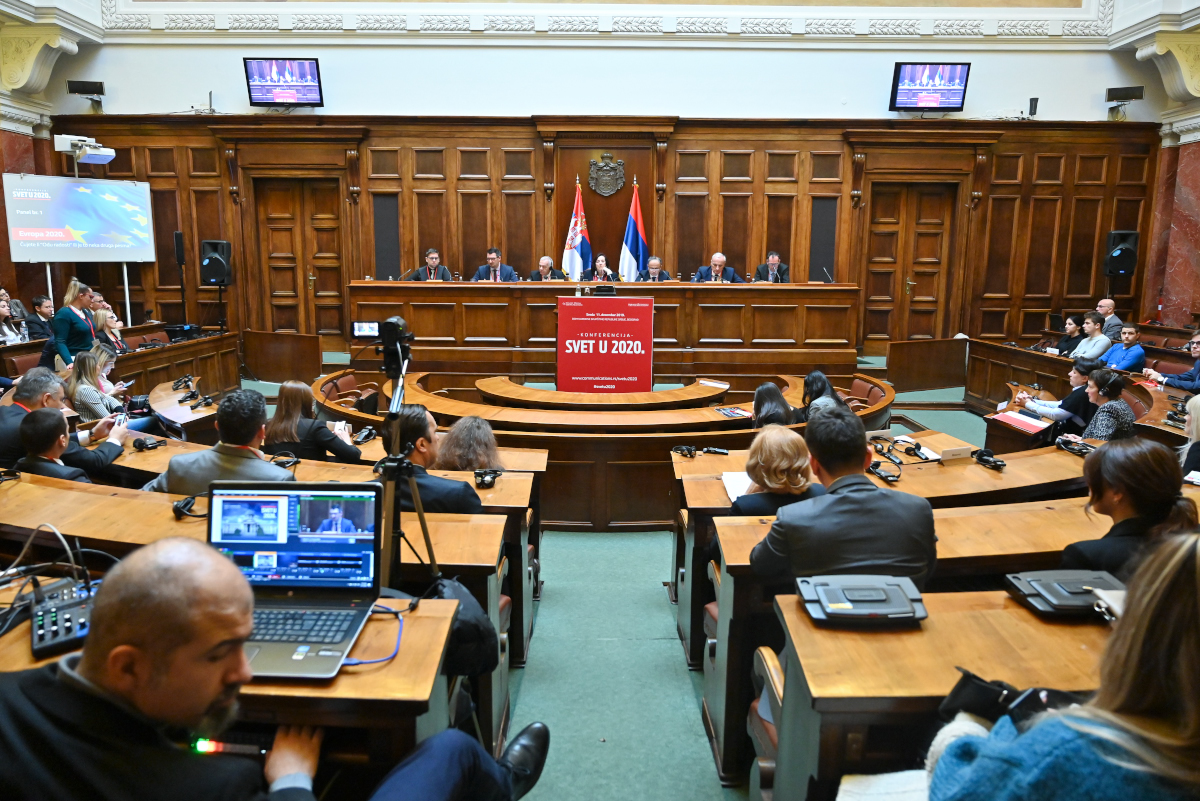
We would like to remind that the aim of the conference is to give opinions, analyses and reviews on the political and economic environment, the investment climate, as well as the development of society as a whole through constructive dialogue of representatives of state institutions, business, diplomatic corps, cultural and public life.
The following companies and organizations supported this year’s conference – Srbijagas, NS Seme, Energotehnika Južna Bačka, European Investment Bank, Coca-Cola, Novartis, Telekom Serbia, Heneken Serbia, Konstruktor Konsalting and Generali Insurance Serbia.